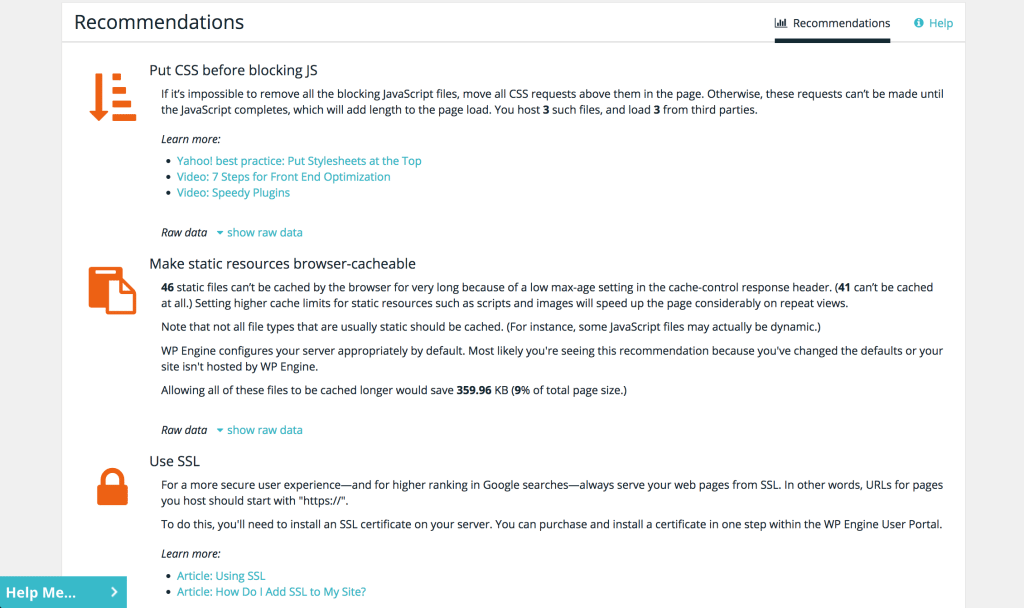
Be A Hero: Speed Up Your Site With Page Performance
One of Superman’s claims to fame is that he’s “faster than a speeding bullet.” Considering the average bullet travels at 1,700 miles per hour (and the current land speed record is a mere 763 mph), Superman isn’t just quick—he’s like lightning. It’s part of what makes him a superhero.
Why does speed matter? We live in an ever-accelerating world and the competitive terms of business are built upon achieving speed. This is especially true on the web where speed is the ultimate differentiator.
Speed Is Money And Customer Satisfaction
Speed builds loyalty and trust. Customers want what they want and they want it fast—instant gratification is now the norm. In the case of your website, customers want it to load in the minimum amount of time possible—so much so that delays reaching online content have been proven to increase heart rate and stress levels. Speed is a competitive differentiator. How does your website speed compare to that of your competitors or benchmarks for your industry? Speed should be thought of as a dimension to your business strategy, not as a by-product of seeking efficiency, but as a means of winning over the hearts and minds of customers.
You’ve likely heard about the studies that show the power of one second on the internet; how a one-second delay in page load time results in 11 percent fewer page views; a 16 percent decrease in customer satisfaction; and a 7 percent drop in conversions. That’s an instant negative impact on your brand and your business. Every second can mean the difference between a sale and a customer lost due to a sour experience.
Think of it this way: if you run an ecommerce website with an average sale of $100, an average conversion rate of 3 percent, and an average of 2,000 visitors per day, a delay of just one second would cost your business more than $1,000 per day. Bump that delay up to five seconds, and now you’re at nearly $3,000 per day—that’s $1 million per year for a delay of five seconds. And as the seconds tick higher, your bottom line sinks.
While you may not be able to reverse the rotation of the Earth to turn back time (like Superman) to make your site faster to avoid that revenue loss, taking action now to speed up your site would certainly make you a hero, right?
WP Engine Page Performance To The Rescue
Grab your cape because with WP Engine Page Performance we’re giving you the ability to dramatically speed up your website, and thus improve your site’s customer experience, your brand’s reputation, your SEO rankings, and, ultimately, your bottom line. Talk about an act of heroism.
What’s Page Performance all about? Page Performance is the first tool to focus on delivering Performance Intelligence; think of it as a utility belt comprising solutions designed to give you relevant, near real-time data and actionable insights so you can boost the performance of your website.
Page Performance is available now to all 47,000 WP Engine customers at no additional cost, and is built into your User Portal. It works like this: enter any URL you please – preferably your site, because you have the power to make it faster — and Page Performance runs a battery of tests to measure how your pages perform. From there, it delivers a detailed study analyzing a number of key metrics, like how fast your page renders, its cacheability, and so on.
You’ll also receive a visitor experience film strip that gives a visual representation of what a visitor to your site actually sees and how long it takes to load from their point of view.
Once the tests are complete, Page Performance also suggests areas where you can improve your site speed with just a few quick tune-ups. For example, it may recommend using gzip compression, or putting CSS before blocking JS.
With WP Engine Page Performance, you get the data and the actionable insights you need to make your site operate at breakneck speeds and improve its performance so you can deliver a better customer experience and drive higher visitor retention, increased conversions, and positive brand reputation.
Page performance will make your site, and you, more powerful than a locomotive. Be a hero with Page Performance.
See Page Performance in action in this video:
Mary Ellen is CMO at WP Engine. She is passionate about building brands that drive business. Follow her on Twitter @maryedugan.



Hiya,
This looks great. I was just watching the explanation/promo video here: https://wpestaging.qa/fast-wordpress-hosting/ and wondered how the results shown for torquemag.io (the site tested in the video) compare to GTMetrix (a leading – maybe even industry-standard – speed test tool). Here’s the GTMetrix results: https://gtmetrix.com/reports/torquemag.io/YIbRLu3X – there are quite a few differences that I wasn’t expecting, such as the number of requests (the WPEngine tool shows 39 and GTMetrix 85) and the page size (the WPEngine tool shows 61KB compares to GTMetrix 1.22MB). Why the differences? Thanks, Brin.
Hi Brin,
Thanks for reaching out and for taking Page Performance for a spin.
We dug into this and, interestingly, we learned that while both tools offer a cached and uncached summary view, we report the cached number by default and they report the uncached number. We also found that we use Chrome by default and they use Firefox. These two things could account for the differences you’re seeing.
We’ll continually look for ways to improve Page Performance. One thing we’re considering for future versions is adding the ability to change inputs like browser, server location, etc.
Thank you again for reaching out.
-Mary Ellen
Very helpful information provided. Speed concept is great.